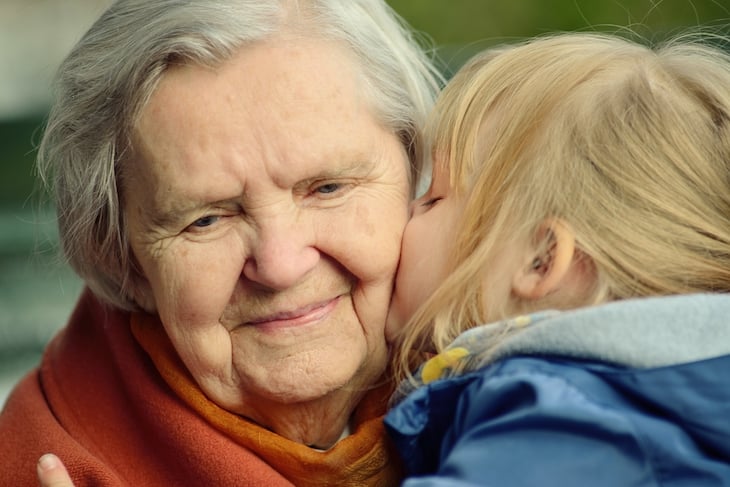
How to Talk with Children and Teens about Alzheimer's
Caregiver Support | Personal Care/Assisted Living
When a loved one is diagnosed with Alzheimer’s disease, the entire family is affected. And in ways that extend far beyond providing care. From concerns about daily supervision to talking with the senior about giving up driving, families face unique challenges.
Figuring out how to explain Alzheimer’s to the grandchildren can be particularly challenging. The unpredictability of a grandparent’s changing behavior can cause children and teens to become fearful and uncertain. A grandparent might remember a grandchild’s name one day, then not know who they are at the next visit.
The rollercoaster of physical and behavioral changes can result in confusing emotions. These feelings can leave children wondering if they’ve done something wrong or worrying that their grandparent doesn’t love them any longer. If it’s time to have a family discussion about a senior’s diagnosis, these tips will be helpful.
Explaining Alzheimer’s Disease to Children and Teens
- Clarify that Alzheimer’s is a disease: First, explain that grandma or grandpa has a medical condition that makes it hard to remember things. The disease causes them to have good days and bad days. On the worst days, a grandparent may act strange and not be able to remember the people they love. This doesn’t mean they don’t love their grandchildren. It is the disease causing them to act differently.
- Keep explanations simple: Alzheimer’s is a difficult disease for even adults to understand. For children and teens, it can lead to more questions than there are answers. Talk about Alzheimer’s in general terms and skip all of the details they don’t need to hear for now.
- Provide reassurance: Hurt feelings and fear, especially with regard to a loved one, can be tough for kids to understand and express. That’s why it is so important to reassure children that the changes they are witnessing in a grandparent are caused by the illness.
- Emphasize that Alzheimer’s isn’t contagious: One worry that children might have is that a parent will “catch” Alzheimer’s disease, too. In light of the ongoing COVID-19 pandemic, kids may be especially fearful for a parent’s safety. Make sure they know that Alzheimer’s is not contagious and you don’t catch it like the flu or the coronavirus.
- Encourage them to listen to their peers: It might be helpful for children and teens to learn by watching a video narrated by kids their own age. That’s why the Alzheimer’s Association created Kids Look at Alzheimer’s and Teens Look at Alzheimer’s. Both provide a quick and easy explanation of the disease.
Focus on the Senior’s Remaining Abilities
Here is one final tip as you prepare to talk with your child or teenager about a grandparent’s diagnosis. Try to focus on what the generations can still do together. Emphasize the grandparent’s remaining abilities instead of focusing on what they’ve lost.
You might write down a list of activities your kids can still do with their senior loved one despite the disease:
- Creating arts and craft projects
- Listening to music
- Having a dance party
- Feeding and watching birds
- Baking and decorating cookies
Don’t forget to ask the kids to share their ideas, too!
How to Find Memory Care Support
Caring for a senior with Alzheimer’s disease or a similar form of dementia can be all-consuming. There typically comes a time when families realize they need outside assistance. Memory care can come in many forms ranging from an in-home caregiver to an assisted living or nursing care community.
If you decide memory support in an assisted living community is the best option for your loved one, this free tool may be of interest. Choosing Assisted Living for Loved Ones with Dementia or Alzheimer’s provides a checklist to assist you with finding the best fit for your loved one. It covers topics ranging from location to the daily activities calendar.
About Presbyterian Senior Living
As the trusted leader in aging services, Presbyterian Senior Living combines over 97 years of experience with innovative approaches to senior communities and services. Across our 27 communities in PA, MD, OH, and DE, we serve over 6,000 seniors. We are committed to: FOSTERING teamwork and responsibility. UPHOLDING integrity in every action. EMBRACING innovation to create opportunities for everyone’s success. LEADING with compassion and respect.


